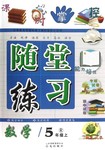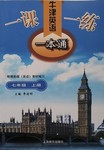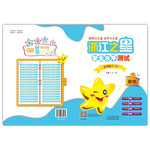题目内容
I’ve started driving again, just small journeys until I gain my confidence. Tonight I drove along a road ______about 12 years ago. As I drove along it I_______Kelly.
Kelly was a ______when this road was constructed. Her mother _______when Kelly was very young. She and her brother were _______by her father and she herself admitted that she was a(an)______child, climbing out windows, staying out drinking etc. The year after I taught her, a ______thing happened. Kelly’s dad was about to turn onto the new road ______he met with a fatal(致命的)accident.
At that stage I didn’t teach Kelly but had______taught on her learning programme. I wrote to tell her that I would help her with one of the six_______she still had to complete on her second and final year of her programme.
I brought Kelly to my home where I _____and supported her through the whole unit. I got her to complete all the assignments at my home so that she would stay_______. Kelly got a better performance in the unit I taught her, and this helped raise her overall______. My support also helped her focus on her studies at such a ______time in her life. Kelly’s lecturer was so______ with her assignments that she got Kelly to______the higher level parts of the assignments to the rest of the class! This was so good for her self-esteem(自尊心). Kelly _____her course. I was so glad she didn’t ______.
A few yeas ago I met Kelly in the town centre. She was ______a pram(婴儿车), her newly born son sleeping contentedly. I was glad to see life had brought a new family member into Kelly’s life for her to love. It’s the______ she deserved.
1.A. created B. ruined C. flooded D. blocked
2.A. met B. hit C. remembered D. recognized
3.A. worker B. student C. teacher D. volunteer
4.A. passed away B. backed up C. helped out D. took over
5.A. forgiven B. affected C. rescued D. raised
6.A. active B. wild C. optimistic D. curious
7.A. strange B. mysterious C. terrible D. delightful
8.A. when B. because C. once D. though
9.A. seldom B. later C. eventually D. previously
10.A. books B. units C. courses D. subjects
11.A. admired B. knew C. tutored D. hired
12.A. interested B. focused C. awake D. happy
13.A. grades B. looks C. health D. weight
14.A. good B. happy C. sad D. pleasant
15.A. impressed B. puzzled C. disappointed D. embarrassed
16.A. show B. give C. pass D. explain
17.A. quit B. completed C. failed D. chose
18.A. stand up B. move out C. drop out D. set out
19.A. selling B. pushing C. making D. riding
20.A. last B. most C. worst D. least
 开心蛙状元作业系列答案
开心蛙状元作业系列答案 课时掌控随堂练习系列答案
课时掌控随堂练习系列答案 一课一练一本通系列答案
一课一练一本通系列答案 浙江之星学业水平测试系列答案
浙江之星学业水平测试系列答案
